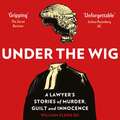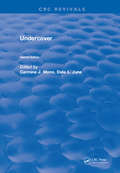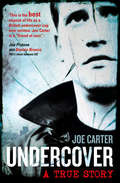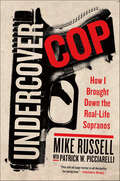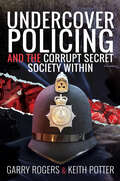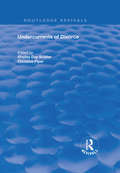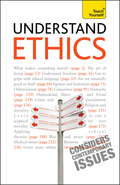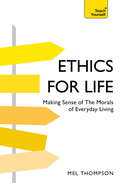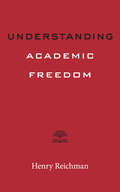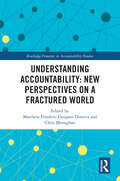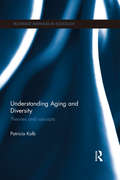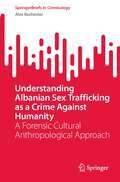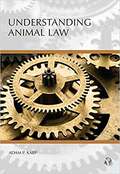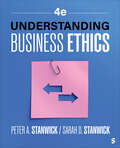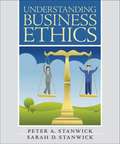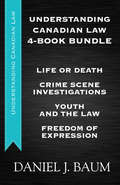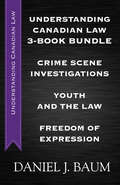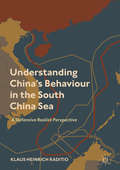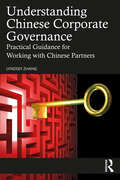- Table View
- List View
Under the Wig: A Lawyer's Stories of Murder, Guilt and Innocence
by William Clegg'This is a gripping memoir from one of our country's greatest jury advocates, offering a fascinating, no-holds-barred tour behind the scenes of some of the most famous criminal cases of modern times' The Secret Barrister'Gripping' - The Times'Mixes the excitement of the courtroom and some practical tips on the advocacy with the more mundane life of the working lawyer' - Sunday Times 'Between such serious case studies, his jovial memoir reflects on the challenges and satisfactions of life as a barrister.' - Daily Mail___________ How can you speak up for someone accused of a savage murder? Or sway a jury? Or get a judge to drop a case?In this memoir, murder case lawyer William Clegg revisits his most intriguing trials, from the acquittal of Colin Stagg to the shooting of Jill Dando, to the man given life because of an earprint.All the while he lays bare the secrets of his profession, from the rivalry among barristers to the nervous moments before a verdict comes back, and how our right to a fair trial is now at risk.Under the Wig is for anyone who wants to know the reality of a murder trial. It has been praised as "gripping" by The Times, "riveting" by the Sunday Express and "fascinating" by the Secret Barrister, who described the author as "one of our country's greatest jury advocates."Several prominent barristers, including Matthew Scott and Bob Marshall-Andrews QC, have said Under the Wig is a "must read" for anyone with an interest in the criminal law. Switch off the TV dramas and see real criminal law in action. Well-known cases featured:The Murder of Rachel Nickell on Wimbledon Common The Chillenden Murders (Dr Lin and Megan Russell) The Trial of Private Lee Clegg The Murder of Jill Dando The first Nazi war crimes prosecution in the UK The Murder of Joanna Yeates The Rebekah Brooks Phone Hacking Trial
Undercover
by Dale L. June Carmine J. MottoAn instructive and entertaining book for those public and private investigators who are potential undercover agents, this book approaches the topic from three angles: how to handle informants, how to investigate suspects, and how to be an undercover agent. Undercover places emphasis on the law enforcement agent but does not overlook the private investigator who may be assigned to work in an undercover role in business or industry.The first edition of this book quickly became the classic text for a whole generation of law enforcement personnel, and the name Carmine Motto, now retired from the secret service, is known throughout the country. Both authors contribute years of personal experience and use actual case anecdotes to focus attention on the triangle of interpersonal relationships among the informant, the suspect and the investigative agent. The motivations of the informant are detailed and analyzed to determine his reasoning and willingness to assist the investigator; the suspect is examined relative to his background, associates and capabilities; and, the investigative agent is instructed in protecting the identities of and handling of informants while gaining the confidence of the suspect. This edition of Undercover modernizes the writing, replaces the photographs, and updates the cases to provide insight into the highly intriguing and fascinating human intelligence and evidence gathering method that has captured the public's attention through movies, television and newspapers.
Undercover
by Joe CarterA compelling true story of the reality of undercover police workFor over 20 years, Joe Carter has worked for the police as an undercover cop. Travelling the globe on different passports, fraternising with thieves and international drugs and arms dealers, working alongside dangerous criminals, Carter always knew his life would come crashing down around him at any point. His story is a gripping account of the secret, solitary work of an undercover officer and the many ‘sticky’ situations he found himself in, as well as the moving confession of the difficulty in reconciling his two identities with his family life.This book explores the resilience needed to lead a double life, the thrilling challenge of working with the biggest criminals in Britain, and maintaining a sense of justice through the many adventures he encounters.
Undercover Cop: How I Brought Down the Real-Life Sopranos
by Mike Russell Patrick W. Picciarelli“Nobody did undercover better than Mike Russell. His story is grittier than The Sopranos, more volatile than Goodfellas. A must read.” —George Anastasia, New York Times–bestselling authorNearly taken out of the game by a shooting, New Jersey state trooper Mike Russell eventually found himself in the right place at the right time to save Andy Gerardo, one of the ranking captains of the Genovese crime family, from an attack. Quickly earning the trust of his new friend, Russell would orchestrate one of the biggest Mafia takedowns of all time.Urged by his police handlers, Russell used his cover story—an ex-cop fired for excessive force who now made his living from an oil-delivery business—and street skills to assimilate into the Genovese crime family in New Jersey, ultimately leading to more than fifty arrests of mobsters, corrupt prison officials, and even a state senator. Straddling the thin line between collecting evidence and participating in the very crimes he was leaking to the cops, Russell consistently placed himself at risk—especially when his police handlers disregarded his wishes and his well-being, conducting premature raids on the gangsters. With his marriage suffering and his family in danger, Russell took extraordinary steps to ensure his financial security and safety, demanding better terms from the police and allowing a film crew to document the final moments of the epic bust for a documentary that was later sold to HBO.A real-life version of The Sopranos, Undercover Cop immerses readers in the colorful yet harrowing trials of a standout cop who faced the mob on his own terms, crippled organized crime in New Jersey, and forever redefined undercover law enforcement.
Undercover Epicenter Nurse: How Fraud, Negligence, and Greed Led to Unnecessary Deaths at Elmhurst Hospital
by Erin Marie OlszewskiUndercover Epicenter Nurse blows the lid off the COVID-19 pandemic. What would you do if you discovered that the media and the government were lying to us all? And that hundreds, maybe thousands of people were dying because of it? Army combat veteran and registered nurse Erin Olszewski&’s most deeply held values were put to the test when she arrived as a travel nurse at Elmhurst Hospital in the epicenter of the COVID-19 pandemic. After serving in Iraq, she was back on the front lines—and this time, she found, the situation was even worse. Rooms were filthy, nurses were lax with sanitation measures, and hospital-acquired cases of COVID-19 were spreading like wildfire. Worse, people who had tested negative multiple times for COVID-19 were being labeled as COVID-confirmed and put on COVID-only floors. Put on ventilators and drugged up with sedatives, these patients quickly deteriorated—even though they did not have coronavirus when they checked in. Doctors-in-training were refusing to perform CPR—and banning nurses from doing it—on dying patients whose families had not consented to &“Do Not Resuscitate&” orders. Erin wasn&’t about to stand by and let her patients keep dying on her watch, but she knew that if she told the truth, people wouldn&’t believe her. It was just too shocking. Willing to go to battle for her patients, Erin made the decision to go deep undercover, recording conversations with other nurses, videos of malpractice, and more. She began to share what she found on social media. Unsurprisingly, she was fired for it. Now, Erin is standing up to tell the whole horrifying story of what happened inside Elmhurst Hospital to demand justice for those who fell victim to the hospital&’s greed. Not only must the staff be held accountable for their unethical actions; but also, this kind of corruption must be destroyed so that future Americans are not put at risks. The deaths have to end, and Erin won&’t rest until the bad actors are exposed. Undercover Epicenter Nurse: How Fraud, Negligence, and Greed Led to Unnecessary Deaths at Elmhurst Hospital is a shocking and infuriating inside exposé of the American healthcare system gone wrong. At the same time, it&’s the story of a woman who traveled from the small-town streets of Wisconsin, to the battlefields of Iraq, to the mean streets of Queens, on a quest to help fight for her country. With this book, the real battle has begun.
Undercover Policing and the Corrupt Secret Society Within
by Keith Potter Garry RogersA former police officer reveals all in a shocking autobiography “detailing his time undercover amongst some of the UK’s toughest criminals” (Daily Mirror).Garry Rogers played a key role in one of the UK’s most successful undercover policing operations, targeting the football hooliganism which blighted the domestic and international game. From Old Trafford to Turkey and Sweden to Sardinia, this working class lad turned undercover cop infiltrated some of the most notorious hooligan gangs at club and England level as part of Greater Manchester Police’s groundbreaking Omega Unit.When the force extended its undercover policing operations to target serious and violent crime, it was Garry who gained the trust of armed robbers, drug dealers and a murderer securing the evidence to take them off the streets, often for many years.But after five years at the cutting edge of covert operations, and with a new, inexperienced and ultimately corrupt officer in charge of the unit, Garry found himself dangerously exposed to violent criminals living just minutes from his family home. And when he turned to the force for support he was met with a wall of silence, accusations, and what one chief constable later described as a Masonic conspiracy that eventually pushed him out of the job after 28 years. Now he’s determined to tell his story—the truth, the whole truth and nothing but the truth.
Undercover Policing and the Corrupt Secret Society Within
by Keith Potter Garry RogersA former police officer reveals all in a shocking autobiography “detailing his time undercover amongst some of the UK’s toughest criminals” (Daily Mirror).Garry Rogers played a key role in one of the UK’s most successful undercover policing operations, targeting the football hooliganism which blighted the domestic and international game. From Old Trafford to Turkey and Sweden to Sardinia, this working class lad turned undercover cop infiltrated some of the most notorious hooligan gangs at club and England level as part of Greater Manchester Police’s groundbreaking Omega Unit.When the force extended its undercover policing operations to target serious and violent crime, it was Garry who gained the trust of armed robbers, drug dealers and a murderer securing the evidence to take them off the streets, often for many years.But after five years at the cutting edge of covert operations, and with a new, inexperienced and ultimately corrupt officer in charge of the unit, Garry found himself dangerously exposed to violent criminals living just minutes from his family home. And when he turned to the force for support he was met with a wall of silence, accusations, and what one chief constable later described as a Masonic conspiracy that eventually pushed him out of the job after 28 years. Now he’s determined to tell his story—the truth, the whole truth and nothing but the truth.
Undercover: Operazione Julie - La Verità
by Stephen BentleySi dice che l'Operazione Julie sia la >. Questa è la storia vera di uno di solo quattro detective sotto-copertura dell'Operazione Julie. L'Operazione Julie è ancora oggi il punto di riferimento per tutte le operazioni sotto-copertura e gli addestramenti britannici. Nel 2011 la BBC ha affermato che questa grandiosa ed unica operazione di polizia fu l'inizio della guerra contro le droghe. Stephen Bentley era uno dei quattro detective sotto-copertura coinvolti nell'Operazione Julie, uno dei più grandi colpi antidroga del mondo. Assieme al suo partner sotto-copertura, si infiltrò nella gang producente circa il 90% dell'LSD nel mondo e scoprì una trama per importare copiose quantità di cocaina boliviana nel Regno Unito. La malavita conobbe l'autore come Steve Jackson. Come riuscì ad infiltrarsi con successo nelle due gang? Dovette fare uso di droghe? E come lo influenzò >? Scoprite le risposte ed entrate nella mente di Steve Jackson, detective sotto-copertura. Un affascinante, diretto, onesto resoconto di un insider che in realtà era un outsider... un racconto di avidità oltraggiosa, lussuria, violenza e prodezza di pochi uomini che avevano un obiettivo ammirevole e di come lo gestirono. Una prospettiva dall'interno del traffico di droga, raccontata con fascino, intelligenza e in certi casi con umorismo da un uomo talentuoso, particolarmente qualificato a raccontare la storia vera, che più di tutti era un decente uomo onesto. Semplicemente una bella lettura. - Estratto di una recensione.
Undercurrents of Divorce (Routledge Revivals #17)
by Shelley Day Sclater Christine PiperPublished in 1999. Despite considerable comment about divorce reform and the post-divorce family, in the press and in academia, by professionals and politicians, much has been left unsaid. There are 'undercurrents' of divorce which are not visible and are not discussed because they do not fit into the dominant discursive framework for talk about divorce. This book brings these undercurrents to the surface and does two things. It explains how and why aspects of divorce and the lives of those divorcing, have become marginalized in professional and political discussion and it makes visible the practical and legal effects of such exclusion. It argues that there are good policy reasons for this particular socio-legal critique at this time, as the implementation of the Family Law Act 1996 gets underway.
Understand Ethics: Making Sense of the Morals of Everyday Living
by Mel ThompsonWhether you're a student studying philosophy at any level, or simply want to gain a deeper understanding of this fascinating subject, Understand Ethics is an accessible introduction to all the key theories and thinkers. Fully updated, this latest edition includes contemporary examples and discussion of current debates including terrorism, genetics and the media, helping you to grasp how ethics applies to life today.NOT GOT MUCH TIME?One, five and ten-minute introductions to key principles to get you started.AUTHOR INSIGHTSLots of instant help with common problems and quick tips for success, based on the author's many years of experience.TEST YOURSELFTests in the book and online to keep track of your progress.EXTEND YOUR KNOWLEDGEExtra online articles at www.teachyourself.com to give you a richer understanding of psychology.FIVE THINGS TO REMEMBERQuick refreshers to help you remember the key facts.TRY THISInnovative exercises illustrate what you've learnt and how to use it.
Understand Ethics: Making Sense of the Morals of Everyday Living (Teach Yourself General Ser.)
by Mel ThompsonWe all face questions on an almost daily basis related to truth and post-truth, particularly in the political sphere, terrorism, globalization, immigration and asylum, social responsibility, media and social-media ethics, and gender and LGBT issues. So how do you navigate this minefield? Ethics for Life is an accessible introduction to all the key theories and thinkers. It shows the relevance of ethical ideas and theories to everyday life, emphasizing the way our view of ourselves and the societies we live in is shaped by our moral values and the arguments they are based on.With contemporary examples and discussion of current debates including terrorism, genetics and the media, Ethics for Life will help you grasp how ethics applies to life today.
Understanding Academic Freedom (Higher Ed Leadership Essentials)
by Henry ReichmanPart of the acclaimed Higher Ed Leadership Essentials series, this book surveys academic freedom's history and its application in today's universities.Academic freedom is once again at the epicenter of the crisis in higher education. A community college instructor in Iowa is pressured to resign after his pro-antifa social media comments garner vicious harassment that administrators find threatening to campus safety. A tenured biology professor at a college on Long Island is threatened with dismissal because she allegedly grades students too strictly. And in the wake of the COVID-19 pandemic, a conservative activist calls on his followers to take advantage of online classes to send "any and all videos of blatant indoctrination" to his organization so that it might expose and blacklist "leftist professors." These incidents from the 2019–20 academic year represent only the tip of the iceberg. Academic freedom, long heralded as a core value of American higher education, may now be in as much danger as at any time the 1950s. But what is "academic freedom"? A value upheld for one's supporters (but not one's opponents) when discussing a polarizing controversy? Or a narrow claim of privilege by a professorial elite, immune from public accountability?In this concise and compelling book, Henry Reichman, who chaired the American Association of University Professors' Committee on Academic Freedom and Tenure for nearly a decade, mounts a rigorous defense of academic freedom and its principal means of protection: the system of academic tenure. Probing academic freedom's role in multiple contexts, Reichman draws on a wealth of historical and contemporary examples to offer the first comprehensive introduction to the concept in all its manifestations. Elucidating its sometimes complicated meanings, Reichman argues that academic freedom—like its cousin, freedom of speech—cannot easily be defined but, instead, emerges from the contextual application of guiding principles developed and modified over time. He also explores why the rise of contingent faculty employment represents the gravest current threat to academic freedom; reveals how academic freedom is complicated by both fiercely polarized campus environments and the emergence of social media that extend speech beyond the lecture halls of the academy; and touches on the rights of students in and out of class, including treatment of student protest movements.
Understanding Accountability: New Perspectives on a Fractured World (Routledge Frontiers in Accountability Studies)
by Matthew Flinders, Gergana Dimova and Chris MonaghanThis book brings clarity and understanding to the concept of accountability through the lens of conceptual political analysis. As the structure of the modern state has become more complex, the architecture of accountability has itself needed to evolve and re-orientate in an attempt to keep pace. This has led to an increased emphasis not on accountability per se but on different kinds or types of accountability. As such, it is argued here that accountability has emerged to become a concept with adjectives and there is a real need to properly understand accountability in an increasingly fractured world. The theoretical and analytical glue that binds all of the chapters in this collection is a commitment to working within the contours of the work of the philosopher, Giovanni Sartori. This is an approach that has been used to tease apart and interrogate a range of concepts including terrorism, governance, coups, gender equality, deliberation, warfare, clientelism, hybrid regimes, democracy, right through to art, love, rape and violence. It is also an approach that facilitates the cultivation of complex debates concerning the limits of conceptual flexibility. The volume consists of twelve chapters, grouped into three main parts. The introductory part provides the foundations for the collection. Part I on Power explores the normative dimensions of accountability as a means to control and regulate power. Part II on Politics focuses inter alia on accountability following a period of crisis and the emergence of new technology such as algorithms. The final part, Part III, on Particularities looks at concepts such as social accountability and what is meant by supplementary accountability. This broad-ranging collection increases the conceptual toolkit that social and political scientists and lawyers can use to interrogate change at a number of levels and in a range of sectors. Whether through a focus on moral, individual or gendered accountability, or through a shift towards clashing, stakeholder or social accountability, there is a clear flow and coherence through the chapters. The volume will be of interest to academics and researchers working in the areas of Legal and Political Theory, Legal and Political Philosophy and Accountability Studies.
Understanding Aging and Diversity: Theories and Concepts (Routledge Advances in Sociology)
by Patricia KolbThe demographic phenomena of increased life expectancy, increasing global population of older adults, and a larger number of older people as a proportion of the total population in nations throughout the world will affect our lives and the life of each person we know. The changes will result in challenges and benefits for societies and people of all ages. These events need to be understood, explained, and their consequences addressed; sociological theories about aging are an essential part of this process. In Understanding Aging and Diversity: Theories and Concepts, Patricia Kolb presents important sociological theories and concepts for understanding experiences of older people and their families in a rapidly changing world. She explores concepts from phenomenology, critical theory, feminist theory, life course theory and gerotranscendence theory to explain important issues in the lives of older people. This book investigates similarities and differences in aging experiences, focusing in particular on the effects of inequality. Kolb examines the relationship of ethnicity, race, gender, sexual orientation and social class to international aging experiences. This book explores the relationships between older people and social systems in different ways, and informs thinking about policy development and other strategies for enhancing the wellbeing of older adults. It will be useful for students and scholars of sociology, gerontology, social work, anthropology, economics, demography and global studies.
Understanding Albanian Sex Trafficking as a Crime Against Humanity: A Forensic Cultural Anthropological Approach (SpringerBriefs in Criminology)
by Alex RochesterThis volume considers the most appropriate criminal jurisdiction to prosecute aggravated sex trafficking of the kind associated with northern Albanian crime groups. Watershed jurisprudence from the Yugoslav war crimes tribunal could prove pivotal to achieving the legislative changes for prosecuting Albanian sex trafficking in peacetime that this book advocates. This book revisits this relevant history to challenge the current transnational status of trafficking as a mischaracterisation. It is maintained that the Albanian sex trafficker has become, like the wartime rapist before him, the perpetrator of an offence that warrants recognition by the international criminal justice regime. The book considers the historico-cultural legacies of present-day root-causes of Albanian sex trafficking to understand how the same dehumanising ideology and sexual violence aimed at women during the Yugoslav Wars persisted post-conflict and continues to underscore contemporary Albanian sex trafficking and what these similarities in assailant attitudes and actions might mean for potentially prosecuting human trafficking within the international criminal justice system. Through the prism of neutralisation theory rooted in forensic cultural anthropology, in the form of a novel hypothetical model, a conceptual framework to consider the true nature of trafficking is offered. The model offers a précised interpretation of the key factors that establish certain criminal conduct as suitable for international criminal justice and how those factors relate to Albanian sex trafficking. The model distils the characteristics of Albanian sex trafficking; it extracts the essential elements and most important aspects of this type of criminality so we can recognise their presence in real-world cases. A case study featuring interviews with the traffickers themselves and individuals who have encountered them firsthand then describes how the model holds for the real-world experience of Albanian sex trafficking. Approached from the trafficker angle, the purpose of the case study is to support the theoretical model by showing how each element manifests in Albanian sex trafficking. For a richer understanding, each of the elements is explained and explored within a historico-cultural context. The chapters in this book feature key topics and supporting material, including: The backstory, purpose, and structure of the international criminal justice system followed by how the regime could and should be extended to encompass aggravated sex trafficking.The role of culturally-shaped neutralization theory in understanding decision-making in sex trafficking on the individual levelHistorico-cultural context, including competing elements of tradition and modernityLongstanding gender attitudes, particularly evaluating violence against womenInterviews with Albanian sex traffickers and victims By evaluating Albanian sex trafficking through this lens, this book aims to identify international criminal justice as a more appropriate and effective approach to prosecuting aggravated sex trafficking and to suggest future opportunities for further research that can aid in improved policing and prisoner management as it relates to Albanian sex trafficking. This book is ideal for students and academic researchers interested in international criminal justice and sex trafficking studies.
Understanding Animal Law (Understanding Ser.)
by Adam KarpThis text not only covers obvious topics such as dangerous dog litigation, veterinary malpractice, wildlife law, service animals, valuation of animals, humans harmed by animals, end-of-life/euthanasia, and custody issues, but also provides analysis of other areas of law where they intersect with animal law issues, such as criminal law, estate planning, consumer protection, bankruptcy, insurance law, contractual disputes, and Section 1983.
Understanding Business Ethics
by Peter A. Stanwick Sarah D. StanwickUnderstanding Business Ethics, Fourth Edition offers an impactful exploration into the realm of ethics in the global business environment. Authors Peter A. Stanwick and Sarah D. Stanwick integrate four key dimensions to differentiate their work from other ethics textbooks: a global perspective, real-world business cases, comprehensive ethics topics, and a consistent theme linking each chapter. Whether it′s uncovering the intricate relations between businesses and their stakeholders, discussing the effects of financial reporting, or exploring the ethical implications of information technology, marketing, human resources, and the natural environment, this textbook equips readers with a robust ethical framework for the business world. Additionally, the timely case studies from diverse industries demonstrate the very real consequences of ethical and unethical decisions. This text is offered in Sage Vantage, an intuitive learning platform that integrates quality Sage textbook content with assignable multimedia activities and auto-graded assessments to drive student engagement and ensure accountability. Unparalleled in its ease of use and built for dynamic teaching and learning, Vantage offers customizable LMS integration and best-in-class support. Watch this video walkthrough and see how Vantage works:
Understanding Business Ethics
by Peter A. Stanwick Sarah D. StanwickUnderstanding Business Ethics, Fourth Edition offers an impactful exploration into the realm of ethics in the global business environment. Authors Peter A. Stanwick and Sarah D. Stanwick integrate four key dimensions to differentiate their work from other ethics textbooks: a global perspective, real-world business cases, comprehensive ethics topics, and a consistent theme linking each chapter. Whether it′s uncovering the intricate relations between businesses and their stakeholders, discussing the effects of financial reporting, or exploring the ethical implications of information technology, marketing, human resources, and the natural environment, this textbook equips readers with a robust ethical framework for the business world. Additionally, the timely case studies from diverse industries demonstrate the very real consequences of ethical and unethical decisions. This text is offered in Sage Vantage, an intuitive learning platform that integrates quality Sage textbook content with assignable multimedia activities and auto-graded assessments to drive student engagement and ensure accountability. Unparalleled in its ease of use and built for dynamic teaching and learning, Vantage offers customizable LMS integration and best-in-class support. Watch this video walkthrough and see how Vantage works:
Understanding Business Ethics
by Peter Stanwick Sarah StanwickThis text is a vehicle for classroom discussion on recent, ethical business cases; and how students can handle future ones in their careers. Topics include the theoretical background of ethics, ethical decision making, relationships between businesses and stakeholders, ethical issues relating to the firms interaction with the natural environment, health care, and ethical issues related to information technology, strategic planning, and corporate culture. To help business professionals and business school students consider the positive consequences of ethical behavior, and the negative consequences of unethical behavior.
Understanding Canadian Law Four-Book Bundle: Youth and the Law / Freedom of Expression / Crime Scene Investigations / Life or Death
by Daniel J. BaumIn this special four-book bundle, legal expert Daniel J. Baum explains Canadian law in a clear and understandable way. Includes: Youth and the Law Laws, as they relate to youth and youth issues, can be difficult to understand for those they are intended to serve. Baum breaks down the Supreme Court of Canada’s decisions relating to youth in plain language intended for readers of all ages. Freedom of Expression Freedom of Expression details the protections, limits, and interpretation of freedom of expression in Canada. Crime Scene Investigations A clear guide to the powers and limitations of law enforcement officials. From the right to a lawyer’s advice, to privacy law in search and seizures, to stop-and-frisk-style “carding” operations, this book covers the key topics in depth. Life or Death (New!) Our bodies are ours to control, free from state interference — or so it would seem from the Charter of Rights and Freedoms. But how is this principle really applied?
Understanding Canadian Law Three-Book Bundle: Youth and the Law / Freedom of Expression / Crime Scene Investigations
by Daniel J. BaumDaniel Baum's guides to Canadian law have become essential legal guides for topics ranging from young offenders to first responders. Whether for law professionals of citizens who need to understand their legal rights, the books of the Understanding Canadian Law series are indispensable. Now, the first three instalments of the series are available in an ebook-exclusive bundle. Includes Youth and the Law What's the law? What does it mean? If the law is broken, especially criminal law, there may be a penalty. But who makes the law? How can the government draw lines in imposing individual responsibility? This book examines these questions in the context of dealing with youth, with case studies and analysis. Freedom and Expression This book detailing the protections, limits, and interpretation of freedom of expression in Canada is the second in a series exploring key topics pertaining to Canadian law. Crime Scene Investigations Police investigations can become legal minefields. Crime Scene Investigations is a clear guide to the powers and limitations of law enforcement officials. From the right to a lawyer's advice, to privacy law in search and seizures, to stop-and-frisk-style "carding" operations, this book covers the key topics in depth.
Understanding China’s Behaviour in the South China Sea: A Defensive Realist Perspective
by Klaus Heinrich RaditioThis book analyses the origins of security dilemmas in the South China Sea (SCS) and the significance of China’s actions in asserting its claim from the perspective of defensive realist theory. In its analysis, the book argues that security dilemmas in the SCS first arose between China and other SCS claimants, and then between China and the United States. Research in this book provides significant support to the defensive realist theory vis-à-vis offensive realism. It encourages adopting a reassurance policy to reach a peaceful resolution to the SCS disputes between China, the other claimants, and the United States. The book will be useful for policymakers, academics, researchers and students.
Understanding Chinese Corporate Governance: Practical Guidance for Working with Chinese Partners
by Lyndsey ZhangIn a complex political and environmental global landscape, it has never been more critical for global organizations to understand the past, present, and future of Chinese corporate governance: this book is the key. Leveraging her dual-cultural background and using a board-level practitioner’s lens, Lyndsey Zhang offers insights that will help the global business community better understand Chinese companies’ corporate governance practices and economic development journeys, shorten the learning curve for global business leaders and investors, and explore different economic models that better suit emerging markets. She addresses important questions such as: • How does the Chinese government manage to retain its controlling position in Chinese companies while still making them attractive to global investors? • What are the drivers for Chinese companies’ future corporate governance improvement? • What is China’s position on the worldwide ESG and climate change movements? • How can global practitioners feel less like "navigating in the dark" when working with Chinese companies? This book will be an invaluable resource for anyone seeking to understand the rapidly changing world of Chinese corporate governance, including global investors, senior executives in multinational corporations, consultants, financial and political policymakers, business and law students, and researchers.
Understanding Civil Procedure (4th Edition)
by Gene R. Shreve Peter Raven-HansenThis well-established treatise is premised on the assumption that the key to understanding the principles of civil procedure is to know why: why the principles were created and why they are invoked. The treatise is written to answer these questions as it lays out the basic principles of civil procedure. It also reflects the authors? belief that students of civil procedure can understand and appreciate complex principles when they are clearly presented; teaching civil procedure does not require dumbing it down. The authors use the Federal Rules of Civil Procedure as a model, but they also refer to different state rules and doctrines where appropriate in order to present a representative cross-section of state models. Although they discuss important civil procedure cases in the text, thus supporting the most widely used civil procedure casebooks using these same cases, they also provide useful references to secondary sources and illustrative cases for the reader who wants to explore further.
Understanding Climate Change through Religious Lifeworlds
by David L. HabermanHow can religion help to understand and contend with the challenges of climate change?Understanding Climate Change through Religious Lifeworld,edited by David Haberman, presents a unique collection of essays that detail how the effects of human-related climate change are actively reshaping religious ideas and practices, even as religious groups and communities endeavor to bring their traditions to bear on mounting climate challenges.People of faith from the low-lying islands of the South Pacific to the glacial regions of the Himalayas are influencing how their communities understand earthly problems and develop meaningful responses to them. This collection focuses on a variety of different aspects of this critical interaction, including the role of religion in ongoing debates about climate change, religious sources of environmental knowledge and how this knowledge informs community responses to climate change, and the ways that climate change is in turn driving religious change.Understanding Climate Change through Religious Lifeworlds offers a transnational view of how religion reconciles the concepts of the global and the local and influences the challenges of climate change.
